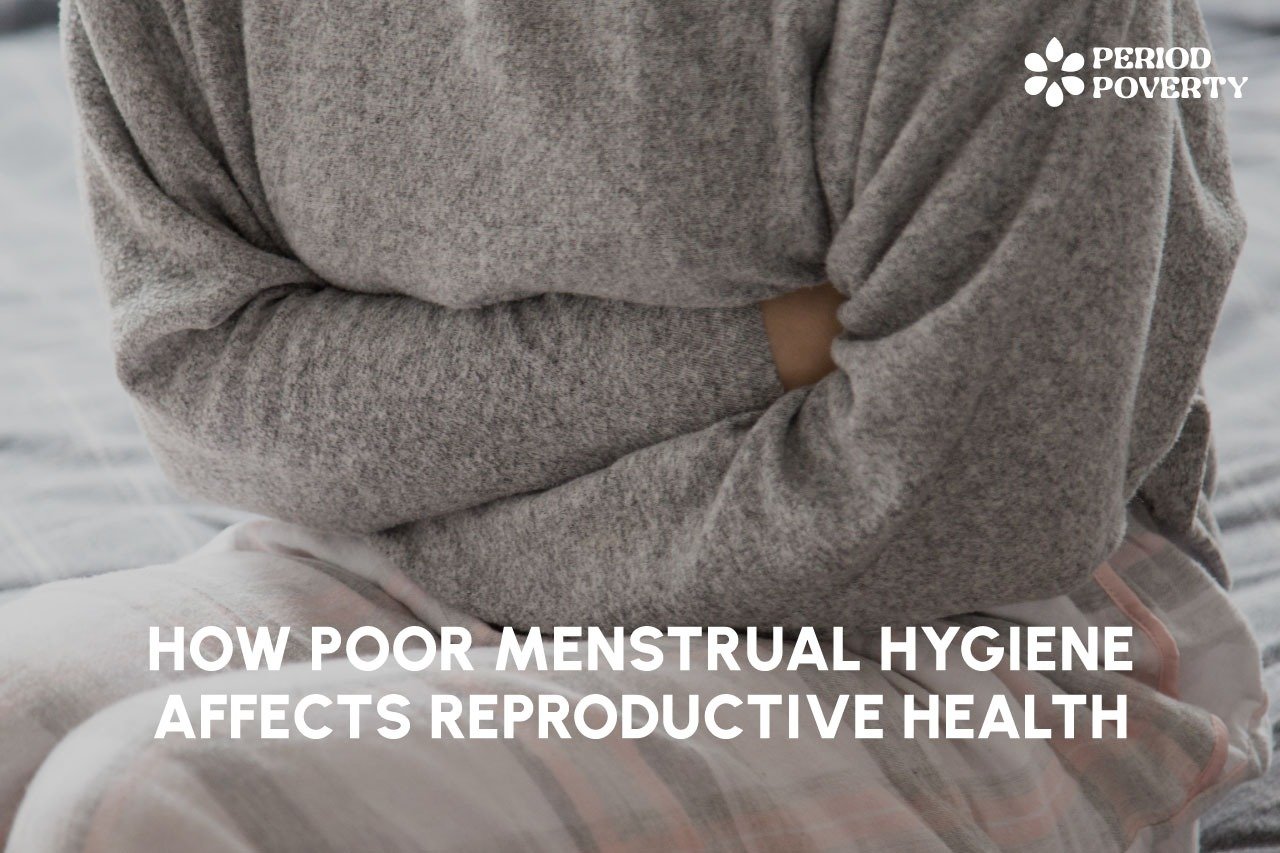Prioritizing reproductive health is crucial for women’s overall well-being. The female reproductive system plays a fundamental role in a woman’s life, encompassing various aspects such as fertility, menstruation, sexual health, and overall hormonal balance. By understanding and caring for the female reproductive system, women can make informed decisions about family planning, maintain optimal reproductive health, and prevent potential complications. Regular screenings, tests, and check-ups are essential for the early detection and management of reproductive disorders and to ensure women receive the necessary support and care throughout their reproductive journey. By taking proactive steps to prioritize reproductive health, women can lead healthier lives and have greater control over their well-being.
Women’s Health Check-Up List
Regular health check-ups are vital for women to ensure their overall well-being and maintain good reproductive health. These check-ups allow healthcare providers to monitor and detect any potential health issues early on, providing timely interventions and preventing complications. By prioritizing regular check-ups, women can take proactive steps towards maintaining optimal reproductive health.
Key screenings and tests play a crucial role in the maintenance of reproductive health. These screenings help in identifying any underlying issues, detecting diseases, and promoting early intervention. Some of the essential screenings for women include pelvic exams, Pap smears, mammograms, bone density tests, and HPV tests. Pelvic exams are performed to assess the health of the reproductive organs and detect any abnormalities. Pap smears are vital for cervical cancer screening, helping to identify any precancerous or cancerous cells. Mammograms aid in the early detection of breast cancer, while bone density tests assess bone health and screen for osteoporosis. HPV tests help identify high-risk strains of the human papillomavirus that can cause cervical cancer.
Blood tests are an integral part of women’s health check-ups, providing valuable insights into overall health and reproductive well-being. Some essential blood tests every woman should have to include a complete blood count (CBC), lipid panel, thyroid function tests, and hormone level assessments. CBC evaluates the blood cell counts and identifies any potential abnormalities, or deficiencies. Lipid panel tests measure cholesterol and triglyceride levels, assessing cardiovascular health. Thyroid function tests evaluate the thyroid gland’s hormone production, which plays a significant role in reproductive health. Hormone level assessments help identify hormonal imbalances that may affect fertility, menstruation, and overall reproductive health.
Recommended health screenings vary based on age and gender. Women’s health screening guidelines emphasize the importance of age-specific screenings to address the changing needs of the female body. For example, younger women may require screenings for sexually transmitted infections (STIs), whereas older women may require screenings for breast and colorectal cancers. Regular mammograms are recommended starting at age 40 to detect breast cancer, while colonoscopies are typically recommended for women aged 50 and above to screen for colorectal cancer. It is important to consult healthcare providers and adhere to recommended guidelines based on age and gender to ensure comprehensive reproductive health screenings.
In addition to age and gender guidelines, women should follow specific screening recommendations provided by healthcare professionals. These guidelines may include frequency of screenings, such as annual Pap smears or biennial mammograms, based on individual risk factors and medical history. Women’s health screening guidelines are designed to provide a framework for comprehensive care, taking into account various factors that may influence reproductive health, such as family history, lifestyle, and personal health history. Adhering to these guidelines ensures that women receive the necessary screenings at the appropriate intervals, promoting early detection and preventive care.
By following a comprehensive women’s health check-up list and adhering to recommended screening guidelines, women can take proactive steps towards maintaining optimal reproductive health. Regular check-ups, key screenings, and blood tests help identify potential issues early on, allowing for timely interventions and effective management. Prioritizing women’s health check-ups not only contributes to overall well-being but also empowers women to take control of their reproductive health and make informed decisions for a healthier future.
Reproductive Health Screenings by Age
Reproductive health screenings are not a one-size-fits-all approach. The changing needs of the female reproductive system necessitate age-specific screenings to address potential risks and ensure comprehensive care. The Centers for Disease Control and Prevention (CDC) provides valuable guidelines for reproductive health screenings based on age. Understanding these guidelines is essential for women to make informed decisions about their reproductive well-being at different stages of life.
Adolescence and Early Adulthood (15-25 years)
During this stage of life, reproductive health screenings focus on establishing a baseline for future care and addressing common concerns for this age group. Pelvic exams are performed to assess the health and development of the reproductive organs. Pap smears, typically initiated around age 21, are important for detecting any precancerous or cancerous changes in the cervix. Additionally, screenings for sexually transmitted infections (STIs) are crucial for promoting safe sexual practices and identifying any infections that may impact fertility or overall reproductive health.
Prime Reproductive Years (25-40 years)
In the prime reproductive years, screenings continue to play a vital role in maintaining reproductive health. Pelvic exams and Pap smears remain important for assessing the health of the reproductive organs and detecting any abnormal changes. Mammograms are introduced as a key screening tool for breast cancer, usually recommended to start at age 40. Regular monitoring of general health parameters, such as blood pressure and cholesterol levels, is also important. Additionally, discussions about family planning and contraception options become prominent during this stage.
Perimenopause and Menopause (40+ years)
As women enter perimenopause and menopause, reproductive health screenings undergo further adjustments to address age-specific concerns. Mammograms continue to be recommended for breast health monitoring. Screenings for colorectal cancer, such as colonoscopies, are typically recommended starting at age 50. Bone density tests become important to assess the risk of osteoporosis and fractures, considering the hormonal changes that occur during menopause. Healthcare providers also address the hormonal changes and related concerns that women may experience during this stage of life.
By following age-specific reproductive health screenings, women can proactively address potential risks and maintain their reproductive well-being throughout different stages of life. Regular screenings, in line with the guidelines provided by healthcare professionals and organizations like the CDC, help ensure comprehensive care and early detection of any reproductive health issues.
Reproductive Health Care and Services
Reproductive health care and services play a crucial role in ensuring women’s overall well-being and reproductive health. Reproductive health clinics provide specialized care and comprehensive services tailored to the unique needs of women throughout their reproductive journeys. These clinics serve as essential resources, offering a wide range of services and support to address various aspects of reproductive health.
One of the primary roles of reproductive health clinics is to provide family planning services. Family planning is vital for women to make informed decisions about their reproductive choices and achieve their desired family size. These services encompass contraceptive counseling, access to birth control methods, and education on fertility awareness. Family planning services empower women to take control of their reproductive health and make choices that align with their personal and lifestyle preferences.
Understanding reproductive disorders and common issues affecting the female reproductive system is another crucial aspect of reproductive health care. Reproductive health clinics provide diagnoses, treatments, and management strategies for a variety of conditions such as polycystic ovary syndrome (PCOS), endometriosis, uterine fibroids, and menstrual disorders. These clinics offer specialized care and support, ensuring that women receive appropriate interventions to address their specific reproductive health concerns.
Accessing reproductive health services and finding suitable healthcare providers is key to receiving optimal care. Reproductive health clinics provide a centralized location where women can access a range of services, including screenings, treatments, counseling, and support. These clinics often have multidisciplinary teams of healthcare professionals, including gynecologists, reproductive endocrinologists, nurses, counselors, and social workers, who work collaboratively to deliver comprehensive care.
To find suitable healthcare providers, women can seek referrals from primary care physicians, seek recommendations from friends or family, or consult online directories provided by reputable organizations. It is essential to choose healthcare providers who specialize in reproductive health and have experience in addressing the unique needs of women. Open communication with healthcare providers is crucial for building a trusting relationship and receiving personalized care.
Reproductive health care and services are essential for promoting women’s reproductive well-being and providing education, support, and interventions to address various aspects of reproductive health. By utilizing the resources offered by reproductive health clinics, accessing family planning services, understanding reproductive disorders, and finding suitable healthcare providers, women can take proactive steps to prioritize their reproductive health and achieve optimal overall well-being.
Resources for Reproductive Health
Reproductive health is an important aspect of overall well-being, and there are numerous organizations, institutions, online resources, and support groups dedicated to providing information, support, and services in this field. These resources are valuable for women seeking reliable information, access to healthcare providers, and a supportive community to navigate reproductive health issues. Here are some notable resources in the field of reproductive health:
- Physicians for Reproductive Health:
Physicians for Reproductive Health is a leading organization that advocates for comprehensive reproductive healthcare. They work to ensure that healthcare providers have the necessary training, resources, and support to deliver high-quality reproductive healthcare services. The organization provides evidence-based information, policy advocacy, and support for healthcare professionals and patients alike.
- National Institute for Reproductive Health (NIRH):
The National Institute for Reproductive Health is committed to advancing reproductive health and rights through policy advocacy, research, and education. NIRH works at the state and local levels to promote access to comprehensive reproductive healthcare, including contraception, abortion care, and other reproductive services. They also collaborate with organizations and communities to build grassroots support for reproductive health policies.
- Online resources and platforms:
There are numerous online resources and platforms that provide reliable information on reproductive health. Websites such as the American College of Obstetricians and Gynecologists (ACOG), Planned Parenthood, and the Centers for Disease Control and Prevention (CDC) offer comprehensive information on reproductive health topics, guidelines, and FAQs. These websites can help women stay informed about various aspects of reproductive health and make educated decisions about their care.
- Support groups and communities:
Support groups and communities can provide valuable emotional support, information sharing, and a safe space for women dealing with reproductive health issues. Local support groups, online forums, and social media communities dedicated to reproductive health can connect women with others who may have similar experiences or concerns. These groups provide an opportunity to share experiences, ask questions, and receive support from others who understand the challenges associated with reproductive health issues.
By utilizing these resources, women can access reliable information, connect with healthcare providers specializing in reproductive health, advocate for their rights, and find support from a community of individuals with similar experiences. These resources contribute to empowering women to make informed decisions, receive appropriate care, and navigate the various aspects of reproductive health in a supportive and knowledgeable environment.
In conclusion, prioritizing reproductive well-being is vital for women’s overall health and quality of life. Open communication with healthcare providers, such as physicians for reproductive health and professionals at reproductive health clinics, is essential for receiving personalized care and guidance. Taking control of one’s reproductive health, utilizing available resources and support, and staying informed empowers women to make informed decisions and lead healthier lives. Let’s embrace the importance of reproductive health and work towards ensuring that every woman has access to comprehensive reproductive health services and the support needed to navigate any reproductive health issues and resultantly eradicate Period Poverty.






